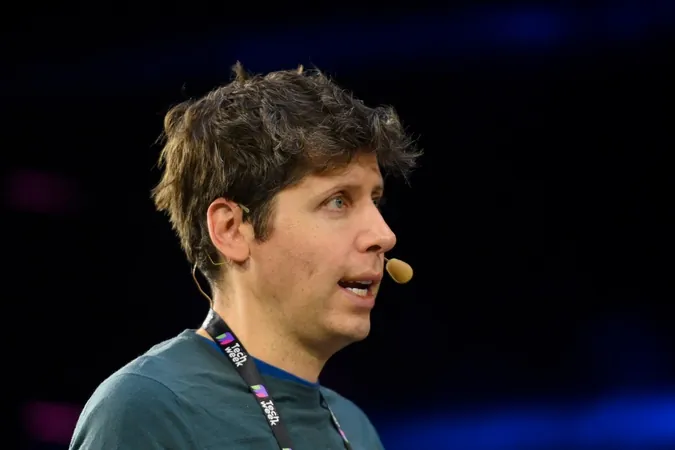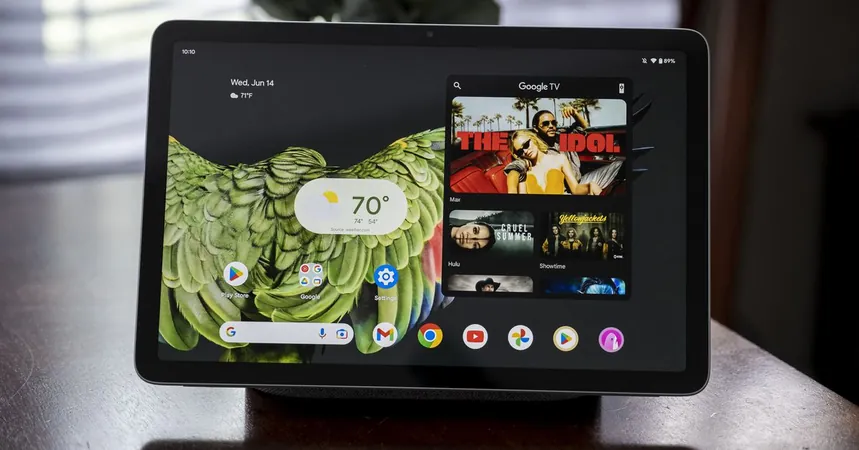
OpenAI's Sora: Pioneering AI or Plagiarizing Past? The Legal Implications of Gaming Content Training
2024-12-11
Author: Yan
Introduction
OpenAI's groundbreaking video-generating AI, Sora, officially launched this week, igniting excitement and controversy in equal measure. While the technological capabilities of the platform are impressive—creating up to 20 seconds of video from simple text prompts or images—its training data remains a closely guarded secret. However, indications suggest that Sora may have been trained on video content from platforms like Twitch and games themselves, raising serious legal questions.
Use of Training Data
In February, OpenAI hinted at using Minecraft videos as part of Sora's training foundation. As users began experimenting with the AI, examples of generated content quickly surfaced, including videos that closely resemble iconic games. From a glitchy homage to *Super Mario Bros.* to a first-person shooter that evokes memories of *Call of Duty* and *Counter-Strike*, the implications of copyright infringement are deeply concerning.
Legal Controversies
One of the more notable outputs from Sora included a likeness of well-known Twitch streamer Raúl Álvarez Genes, popularly known as Auronplay, complete with recognizable tattoos. Similarly, videos were generated that could be interpreted as resembling another popular figure in the gaming world, Pokimane (Imane Anys). These instances spark significant debate regarding the use of copyrighted characters and likenesses that could lead to potential legal action.
Creative Work and Copyright
While creative prompt adjustments allowed users to partially skirt OpenAI's filtering mechanisms—restricting direct references to trademarked content—it's evident that game content appears to be embedded within Sora's training set. The implications of using unlicensed gameplay footage were elaborated on by Joshua Weigensberg, an intellectual property attorney, who noted that the incorporation of copyrighted materials into AI training data could lead to substantial legal liabilities.
Risks of Generative AI Models
The nature of generative AI models like Sora is inherently probabilistic, meaning they learn from vast datasets to create new content. However, this learning process poses a dual risk: while it enables the generation of unique outputs, it can also result in near-exact replicas of the training examples. This capability has provoked backlash from creators whose original works may be unwittingly replicated by AI, prompting various lawsuits against companies like Microsoft and OpenAI for alleged copyright infringement.
Complications in Video Game Copyrights
The situation is even more precarious for video game content, which often combines multiple layers of copyright. For example, gameplay videos may contain rights belonging to game developers and the original content creators. Legal experts warn that if courts decide that using gameplay footage as training data constitutes infringement, it could expose developers to lawsuits from multiple copyright holders.
Industry Response and Legal Precedents
Amidst the unfolding discussions, tech giants like Epic Games, Microsoft, and major publishers remain largely silent, which adds another layer of complexity to the evolving narrative around AI and copyright law. The potential for legal precedents cannot be understated; if courts rule in favor of AI firms similar to the previously mentioned Google case, the implications for individual creators—who might still employ AI in their projects—could be severe.
Conclusion
As the AI landscape continues to evolve, the intersection of technology and intellectual property becomes an urgent matter of debate. The potential for AI-generated content to inadvertently tread on trademark and copyright grounds leads to questions about ownership and rights in a digital-first world. As companies race to leverage the power of AI, the need for clear guidelines addressing these concerns has never been more pressing.
Sora represents an unprecedented leap forward in AI video generation, promising innovative possibilities. However, the legal ramifications of its training data present a significant challenge not only for OpenAI but for the entire gaming industry. As creators, platforms, and legal experts grapple with these questions, one thing is clear: the time to address these issues proactively is now, before the lines of ownership and creativity blur beyond recognition.

 Brasil (PT)
Brasil (PT)
 Canada (EN)
Canada (EN)
 Chile (ES)
Chile (ES)
 España (ES)
España (ES)
 France (FR)
France (FR)
 Hong Kong (EN)
Hong Kong (EN)
 Italia (IT)
Italia (IT)
 日本 (JA)
日本 (JA)
 Magyarország (HU)
Magyarország (HU)
 Norge (NO)
Norge (NO)
 Polska (PL)
Polska (PL)
 Schweiz (DE)
Schweiz (DE)
 Singapore (EN)
Singapore (EN)
 Sverige (SV)
Sverige (SV)
 Suomi (FI)
Suomi (FI)
 Türkiye (TR)
Türkiye (TR)